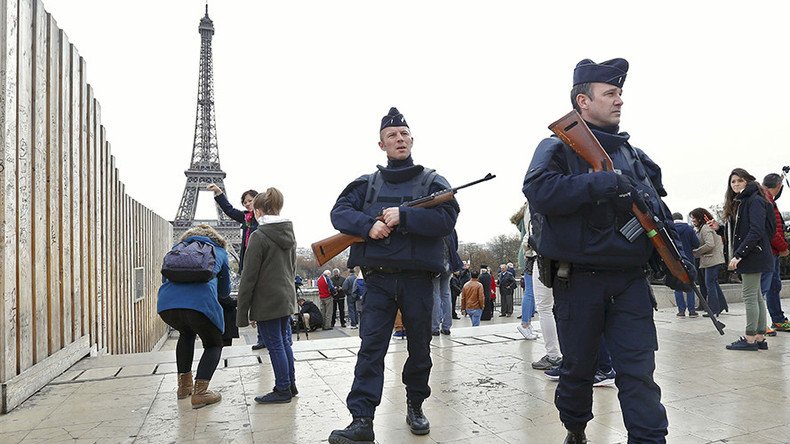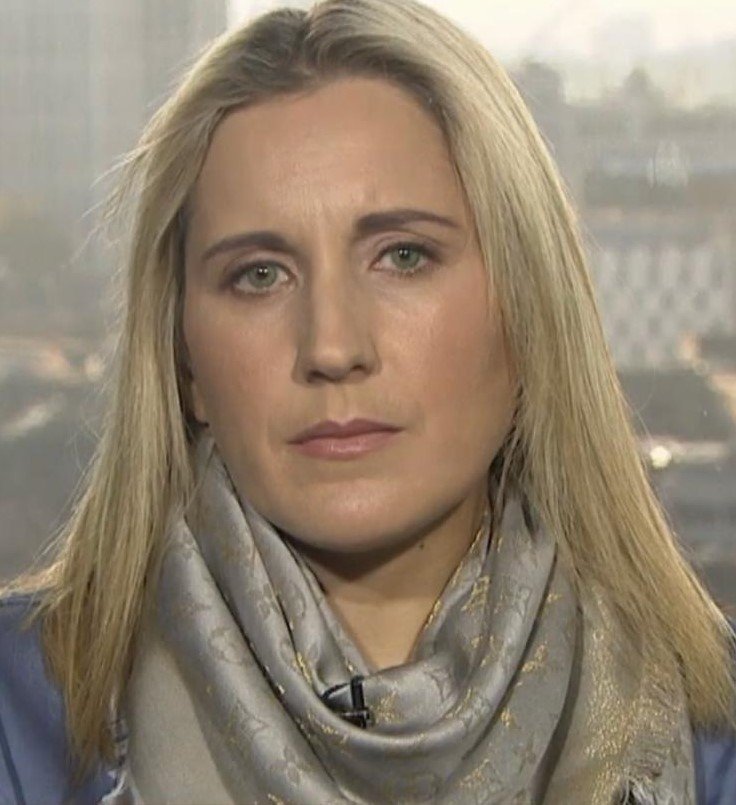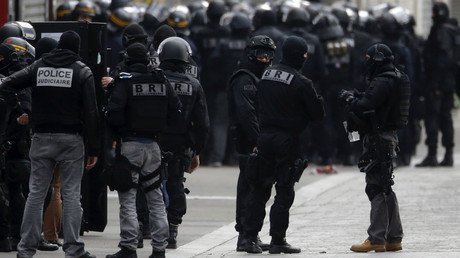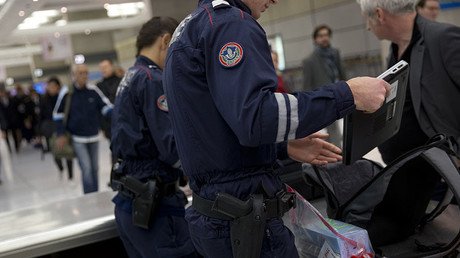The new normal - France vies for a perpetual state of emergency

Left reeling from yet another terror attack on its territory, French officials immediately retracted behind their military and security apparatus, calling on special powers to be rolled out in the name of national security.
As of November 13, and for the first time since 1961, France has lived under a state of emergency - allowing for the executive to requisition and suspend all powers: civil, judicial and otherwise.
French emergency law harks back to the start of the Algerian war (1950s), when exceptional powers were granted to the executive branch, thus breaching one of the country’s most fundamental constitutional tenets: separation of powers. Under the procedure, the executive has almost absolute oversight over the affairs of the state, and the people living in it. That includes of course the right to set curfews, limit people’s movement, raid houses, forbid mass gatherings, and establish “safe zones” where all public spaces such as restaurants, cinemas, theaters, and such would remain closed.
France’s emergency law also provisions for two rather dangerous powers - that to control, restrict and dictate all media, and that to arrest, detain and prosecute any and all individuals, outside the control of the judiciary.
For all intents and purposes this very French state of emergency essentially outlines a very strict, and I would argue, absolute police state, all in the name of course of protecting democracy.
For well over six weeks, France has been living and breathing a political paradox, whereby its officials have rationalized their calls to embed the new state of emergency into the constitution, to better protect and preserve those civil liberties the Republic protects, defines and above all represents.
In other words, France was told it had to abandon all those attributes, rights, and privileges which have come to define and organize its democratic institutions, on the assumption that it will deter terror from breaching its walls.
I’m personally confused. If, as we were told, terror’s agenda was indeed to lay waste Western democracies, in favor of an atrocious and dogmatic ideology - Wahhabism, why would the French volunteer their nationals’ freedom away? More importantly why, would French officials play by terror’s tyrannical little handbook, and forfeit those liberties they claim differentiate them from the diktat of radicalism?
At which point do protective measures devolve into authoritarianism?
Of course French politicians have defended their positions arguing that such powers would only ever be wielded against those elements within society which pose a threat to national security, by that you need to understand that France’s ire will remain for now at least, directed at Muslims and all looking-Muslim communities. If the Front National had its way such a definition would extend to anyone looking vaguely Mediterranean.
How long though before this circle extends to other segments of society? Let’s say foreigners in general, or maybe those foolish enough to express criticism at the state?
For all its democratic posturing France is set to repeat one of the darkest chapters of its history, the Vichy regime.
Let’s just say that under the Vichy State, France did not exactly shine its republican and democratic values; rather it oppressed, betrayed and sold out thousands of its nationals to Nazi Germany, so that its political elite could live another day under the sun of its privileges.
Vichy France was established after France surrendered to Germany on June 22, 1940, and took its name from the government's administrative center in Vichy, southeast of Paris. Paris remained the official capital, to which Marshal Philippe Petain always intended to return the government when this became possible. While officially neutral in the war, Vichy actively collaborated with the Nazis, including, to some degree, with their racial policies.
Is it so hard to imagine that France could embrace once more the shadow of totalitarianism, and racial profiling to defend those institutions it still proclaim to be republican and democratic? Vichy I recall was sold as France’s defense mechanism, collaboration too I recall was presented as France’s only option before implacable military odds.
Here is how France is selling and organizing its democratic pause today.
By the end of November, French President Francois Hollande announced he would extend the state of emergency by another three months, pushing well beyond the initial 12-day legal timeframe.
Since mid-November, as police and other military-looking security forces have taken control of the streets, putting the entire country under de facto military siege, 3,000 raids were carried out, over 300 people were arrested and over 50 were jailed. And because the authorities no longer have to submit to the rule of law, those abuses which always accompany unchallenged authority will go unpunished. And because the state now holds the media within the palm of its hands, no voice will dare rise in protest, not without becoming itself an enemy of the state.
This is not an Orson Welles’ screenplay. This is how France is being governed today. And unless officials are radically, and let’s say it dramatically challenged by those they mean to represent and serve, those powers stand to become enshrined in the French constitution.
As of right now those special policing powers authorities have used under the state of emergency are based on an ordinary law which can be challenged at the constitutional court. It is this legal reality which is the parliamentarian’s ambition to forever change in February 2016.
Speaking at a press conference in late December, French Prime Minister Manuel Valls emphasized that constitutional changes are necessary to protect France from the threat of French nationals returning home from territory controlled by ISIL radicals. "The threat has never been higher," Valls told reporters after a Cabinet meeting. "We must face up to a war, a war against terrorism, against jihadism, against radical Islam,” he added.
Wielding fear as a weapon of mass disinformation and control, President Hollande is championing a constitutional amendment which would essentially give him absolute powers, without the fear of litigation. And while any such reform will need to be passed by a three-fifths majority in the upper and lower houses of parliament, where debates will start on February 3, it is likely France’s hawks will succeed in defiling the Fifth Republic.
If few French seem to have noticed the slippery slope its officials have been gliding upon, one rights group did manage to ring the alarm bell: Amnesty International.
Commenting on France’s planned constitutional change Amnesty International said such reforms are "deeply worrying”, adding to an "already extensive and sometimes disproportionate arsenal" of measures. "The government cannot undermine the rule of law and violate the very human rights it is trying to protect: freedom of expression, freedom of movement and non-discrimination," said Gauri van Gulik, Deputy Europe Director at Amnesty International.
While such criticism is usually reserved for those under-developed regions of the world, where civil liberties are still a foreign concept, it is not often that a very Western democracy is lambasted in such fashion … If anything it does not bode well for France.
The statements, views and opinions expressed in this column are solely those of the author and do not necessarily represent those of RT.















